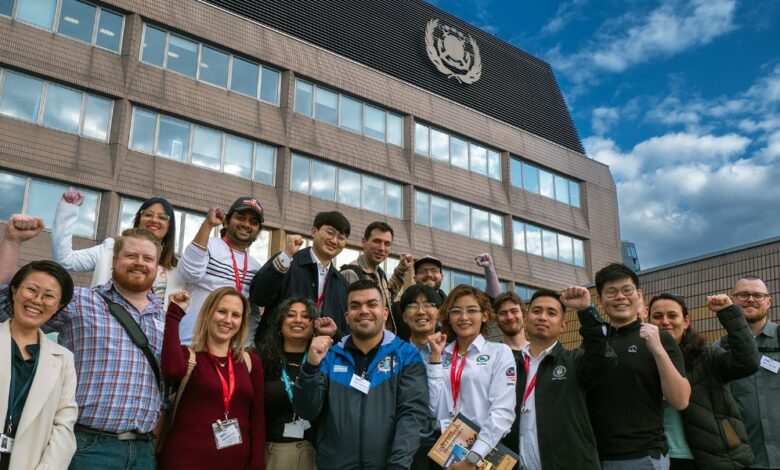Seafarers ‘critical’ in IMO’s revised GHG reduction strategy

Seafarers’ unions have won landmark commitments to a Just Transition for the world’s maritime workforce as part of the IMO’s decision to adopt a new greenhouse gas reduction strategy.
Just Transition is also about supporting workers and communities to play an active role in shaping the coming technological and economic changes.
Under the new strategy, the IMO will need to review seafarer training instruments and guidance, as well as be tasked with ensuring that all new zero, or near-zero, emissions technologies are safe for maritime workers and all affected communities.
“This is an historic recognition by the IMO of the importance of seafarers, and of their health and safety needs. With this Revised Strategy, the IMO is saying that seafarers have a critical role to play in shipping meeting the decarbonisation challenge,” said ITF Seafarers’ Section chair, Dave Heindel.
“The IMO has acknowledged it will only be possible to decarbonise shipping with the active efforts of a well-trained, and well-protected maritime workforce, and that is absolutely correct,” he added.
IMO’s just recently announced its Revised Greenhouse Gas Reduction Strategy which targets to cut overall emissions in the shipping sector. They chart the shipping sector to reach net zero by or around 2050, with interim targets of at least 20% (striving for 30%) by 2030, and 70% (striving for 80%) by 2040.
Researchers have estimated the new IMO strategy requires a per-ship pollution reduction of up to 60% by 2030, and as much as 91% by 2040.
The International Transport Workers’ Federation (ITF) general secretary Stephen Cotton said that such a feat could not be done without workers and the necessary backing for those workers from governments and employers to make the transition successful.

Targets fail when they are not set on a realistic base and they are not managed effectively… Guidance instead of Regulation cannot deal with resistance to change. Considering the above, IMO has undoubtedly failed on its targets so far, and the new targets will identically fail.
Among ca 55,000 commercial ships (BCs, Tankers, Containers, Gas, Gen. Cargo) over 40% are TODAY, on average, over 15 years old. Those ca 22,000 ships have neither intention nor possibility of renewal… and a weak likelihood of major refitting. Besides the rate of world fleet renewals is much lesser than the rate of aging, while scrapping follows the useful life of ships, which is well above the RoI.
New Technology ships are built under provisional “approvals in principle “, a lack of probabilistic-based Solas Regulations, and no experience-based parametric Rules. Guidance is not seaworthiness assurance for either financing or insurance of new ship assets.
Forced by Rule speed reduction would not effectively improve emissions due to the longer steaming required between the same distances.
As for the Seafarers, IMO has just accepted the truth of the obvious: That Seafarers’ Health, Safety, and Working conditions are of paramount importance for the Safety of Shipping at large. This prerequisite of Safety in new technology applying alternative fuels on engines and ship systems cannot be currently accomplished. The reason is that on one hand cannot be enforced by IMO and ROs (Classification) issuing provisional “Guidance” or “AiPs”. On the other hand ROs (Class) do not intend to order Rules soon enough on limited operational experience in the ocean environment and the world ports conditions, under their Policy on Liability issues. Classifications cannot be excused for their liabilities forever.
Seafarers need to exercise their own reviews of their health, Safety, and Work conditions under the challenges imposed on them by serving and operating an unregulated new technology, and not allow to be mocked by safety short-cuts and health compromises of this Industry.
Very well said. I agree fully with your views. There is the reality and then there is the absurdity.